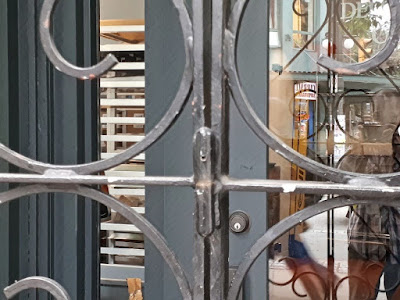Known and Aware
During the latter part of the conversation the black-haired young man had become very impatient. He stared out of the window, and fidgeted, and evidently longed for the end of the journey. He was very absent; he would appear to listen-and heard nothing; and he would laugh of a sudden, evidently with no idea of what he was laughing about.
“The Idiot” by Fyodor Dostoevsky, 1869
**********
Dear Alex,
The way we read between the covers of a book uncovers the way we read one another in between the lines.
I have been a bad reader. I skate through text, glide past the silhouettes of font and story, snatch key points to appoint an arrival destined for disappointment. The alacrity of rattling from page to purpose ends at a quandary in question: Are the points collected worthy of time spent? Or is the time spent worthy of these points in collection?
Am I reading to know or be known? For and by whom or what?
My local library is reopening this week, its first phase of service to give out reserved books on site, a closure to about 45 days of closing through the tail of National Library Week, a rousing of dialogues catalogued by the director of our county libraries in her recent keynote:
“... We can begin to return to the work we all love. Our patrons miss us, and we miss them.”
Return. Work. Love. We. Language of homecoming, incubating and inclusive, camera lens zooming into the interior of tender faces on screenplay without a director, a breath clipped between scores in symphony.
From where and whom have we heard of these humanized words before? In sermon, PowerPoint, telegram, cinema, letter?
For my first time in leisure, I am discovering the intimate worlds of two Russian authors whose love and loss have been insulated by readers for over a century and half, Leo Tolstoy and Fyodor Dostoevsky. Almost nightly for the passing several weeks, I come up close to the parlor of guests and hosts on translated page, come to and from Moscow and St. Petersburg by train among boots and coats in the isolation of Winter, come deeper into the inner circles of nobility and serfdom, come away to the present as foreign and familiar in culture and crisis as the past.
Tolstoy and Dostoevsky knew us before we have known ourselves. They wrote to us then as conversations with us now. They know you ladies too, maybe more so than your beloved. They are sleepwalkers, whisperers, trumpets, readers for those who may not speak the language to wiggle out of self isolation or who remain in isolation in spite of knowing the language.
If only we have a moment to be silent, quarantine our distractions to settle down, isolate our feelings from ourselves to give up space for another, insulate a bit of your storyboard in mine, incubate our gibberish to shared dialect - would we re-emerge from cover and history with boosted immunity to thrive in herd, air and words?
Yours, Kate
************
"For now, we will let the roads sleep.
Because when they wake, we'll have a lot of catching up to do."
A Mazda commercial during COVID-19
***********
Dear Kate,
If we are to read our current dormancy, retreat from our prior living, as a sort of burial, ourselves groaning for resurrection, we are indeed made aware by what we read.
Good stories well told, before anything else, make us aware.
Advertisers are aware. They pick up stories in the air and sell them back to us, supply our demands, change their tune overnight, just like that. And now we are all "in this together." They know how to use stories, in the worst sense of storytelling. To manipulate, that is, to call our attention to untruth and reinforce it in us.
The roads are not sleeping. Neither are those alive now and ever. After this burial, there are those who will be deader than they've been dead before the pandemic, for their neglect, indifference and, yes, disrespect towards life during a period of what they considered no-life. And there're those who will be alive all over again, a daily morning habit of theirs, pandemic or not.
The roads are a gift. They are wide open, made available by the arms of our Creator open wider still. The roads don't sleep, thank you very much our advertising poets for the spurious metaphor.
We sleep.
Yours, Alex



Comments
Post a Comment